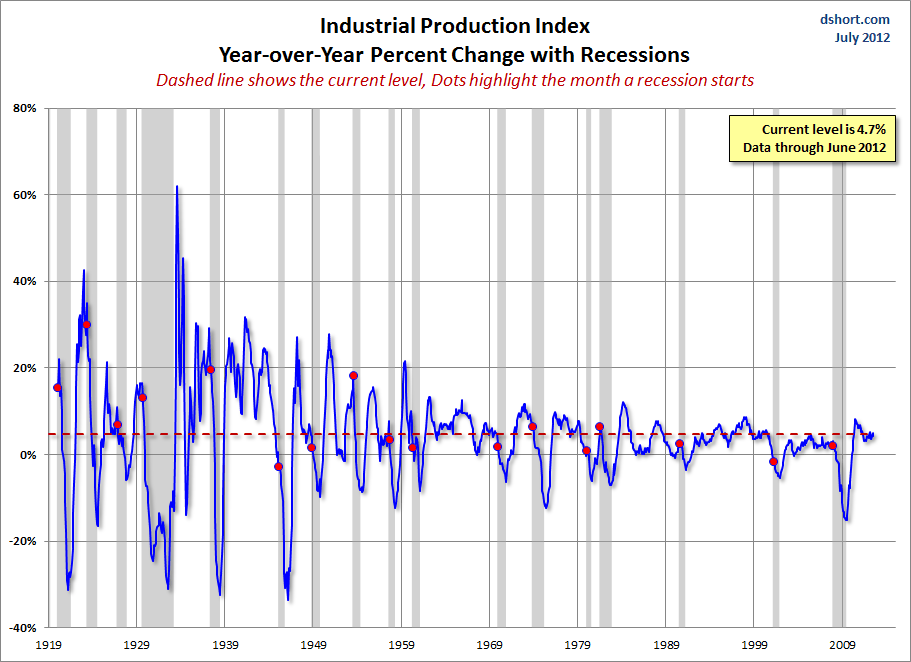What Exactly Is A Recession?
- Rezny Wealth
- Jul 30, 2012
- 2 min read
By popular definition (usually cited by the media), a recession is two consecutive quarters of contracting economic growth. But in the real world, the popular definition doesn’t quite cover it.
The National Bureau of Economic Research (NBER) is charged with calling the official beginning and end of a recession. And as I wrote last week: “the NBER looks for ‘a significant decline in economic activity’ spread across the economy. And that can last anywhere from a few months to more than a year”.
So how does the NBER decide what direction ‘economic activity’ is going?
Of course, they look at a measure of economic growth (GDP). And looking at last week’s GDP report, we can see a clear deceleration in the beginning of the year…and even more deceleration in the second quarter, with growth slowing to 1.5%:

Source: dshort.com
But it isn’t just about GDP. There are other indicators that signal the direction of the economy. The NBER looks at four measures in particular. They look at industrial production:

Source: dshort.com
And rather than looking at the number of people applying for unemployment benefits every week (which is a ‘noisy’ number), they look at the level of employment growth. In the first quarter of this year, employment grew at an average of 226,000 jobs per month. In the second quarter, that slowed to 75,000 per month:

Source: dshort.com
And they look at personal income:

Source: dshort.com
And they look at retail sales…which have declined for the past three months…marking the longest string of declines since 2008.

Source: dshort.com
When you put it all together, 2012 doesn’t look promising.

Source: dshort.com
As I wrote last week: “recessions are funny things. They are not always obvious…rather than ‘falling off a cliff’, they are often more like rolling down a hill”.
And because of that, it is a challenge for experts to define a period of recession. But really, ‘recession’ is just a technical term. When the economy is struggling, people feel it, with or without a term and a time-frame attached to it.
With last week’s GDP report, it’s even clearer that while the economy hasn’t screeched to a halt…it has definitely downshifted. But if we are looking for a definitive answer, the Economic Cycle Research Institute’s Weekly Leading Index is telling us, without question, that we are already in a recession.








Comments